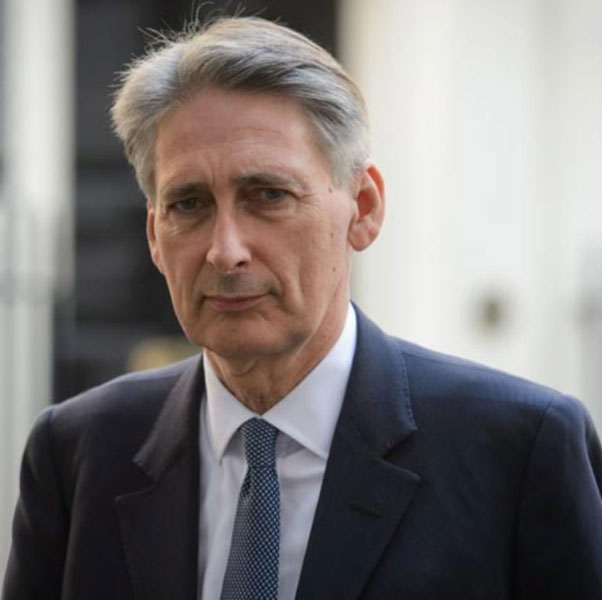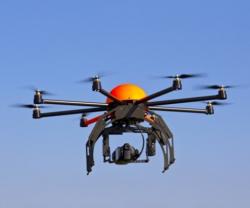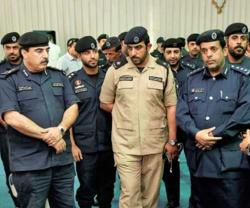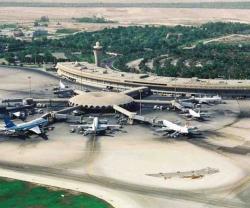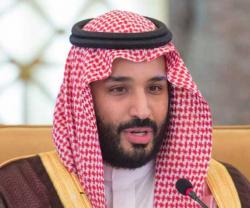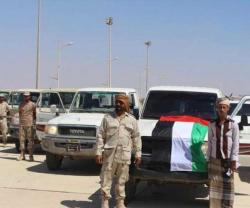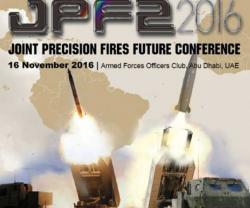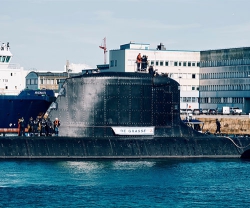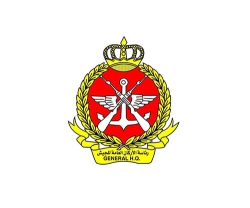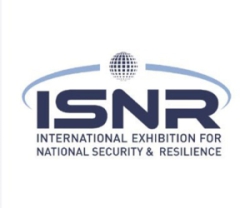UK Foreign Secretary Philip Hammond said that his country is committed to ensuring security of the Gulf and supporting the GCC countries.
Speaking to Qatar News Agency (QNA), Hammond pointed out that his country has a fully commitment to the security strategy for the Gulf region which will crystallize actually in the next few months.
At the end of his visit to Doha, Hammond affirmed that the situation in Syria and the Russian military intervention and Vienna's talks planned to be kicked off tomorrow was the core issue in his meeting with HH the Emir Sheikh Tamim bin Hamad Al -Thani. He noted that he had briefed HH the Emir on the last preparations for talks and ideas put forward for discussion and possibility of convincing the Iranian party to change its position in order to reach an agreement to end the crisis there.
The UK Foreign Secretary said that he also reviewed with HH the Emir situation in Yemen, stressing that both Qatar and the United Kingdom share a same concern about the deterioration of the humanitarian situation there.
The meeting also tackled political process in Libya, which reached a point, he described as “disappointing”, that the political agreement has become very complicated, Hammond added.
On the outcome of his talks with Saudi officials, Hammond said that there is common and strong bilateral relations between his country and Saudi Arabia in all fields, as there are many issues to be discussed.
He pointed out that he had discussed with his Saudi counterpart, the latest developments of Vienna Meeting on situation in Syria in light of Saudi Arabia's great role for resolving this crisis in addition to the strategic situation in the Gulf region and the Yemeni issue.
UK Foreign Secretary said that he had met King Salman bin Abdulaziz of Saudi Arabia and reviewed with him the overall strategic issues in the region, bilateral relations between the two countries and the regional status quo.
On his country's vision towards current situation in Syria after the Russian military intervention, the British official stressed that the situation in Syria is still catastrophic, where civilians are suffering and most of them are forced to flee the country thus exacerbating the refugee crisis that we are trying to address.
He said the Russian intervention constitutes a threat to opposition forces and working to divide them, pointing out that the United Kingdom is seeking to continue its support to the moderate opposition to ensure the continued strength of the opposition on the ground and so are not dislodge by Russia under a pretext of fighting Daesh group.
Hammond said 85% of Russian air attacks were not targeting Daesh group and this fact cannot be denied by Russia.
With regard to the ability of the moderate Syrian opposition to fill the political vacuum in Syria, UK Foreign Secretary said Bashar al-Assad must go and the moderate opposition will not hold any settlement agreement with him. He said that the Syrian opposition at the moment is fighting Daesh group and the Syrian regime and what we must do is to ensure a political solution to end this war and double efforts of all the forces to eliminate Daesh group, but in order to reach this point we have to reach a political agreement to pave the way for a transitional stage in Syria, away from Bashar al-Assad's regime.
On the situation in Iraq and the possibility of the recurrence of the Russian scenario, Hammond said he will not expect a Russian intervention in Iraq “as it will be futile because the coalition forces are waging effective air raids and are not in need of additional support.'” He ruled out that the Russian would have the intention to deploy land forces in Iraq, praising in this regard Iraq's Prime Minister statement Haider Al Abadi that he will not allow the spread of non-national forces in the struggle against Daesh.

